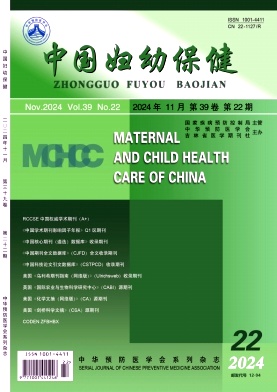与更年期前母亲的身体焦虑有关的因素
引用次数: 0
摘要
(世卫组织)到2020年,亚洲绝经前妇女人数将达到6.54亿人,预计到2025年将达到12亿人,平均年龄为40-50岁。在印度尼西亚,40-50岁的绝经前妇女人数为1721万,预计到2035年将达到2036万。本研究旨在确定绝经前妇女焦虑性生理变化的相关因素。所使用的研究类型是在Lubuk Gadang卫生中心的工作区进行的横断面研究设计的分析。年龄在40到50岁之间有伴侣的绝经前女性总数是205人,随机抽样67人。单因素分析结果显示,52.2%的绝经前妇女没有得到丈夫的支持。46.3%的人知识水平低,43.3%的人经济水平低,25.4%的人有文化,41.8%的人对身体变化有中度焦虑。统计检验结果显示,丈夫的支持(p = 0.012 OR = 7.333)、知识(p = 0.024 OR = 3.6)、经济(p = 0.007 OR = 4.582)、文化(p = 0.002 OR = 7.583)与身体变化焦虑存在相关性。由此可见,丈夫的支持、知识、经济、文化与身体变化焦虑存在一定的关系。因此,建议保健工作者,特别是助产士,提供有关生殖健康的咨询,特别是关于绝经前期间发生的变化,以增加母亲对如何处理更年期的了解,减少绝经前的抱怨。也建议母亲做凯格尔运动,丈夫在绝经前提供动力和支持。关键词:丈夫支持,知识,经济,文化,焦虑本文章由计算机程序翻译,如有差异,请以英文原文为准。
FAKTOR-FAKTOR YANG BERHUBUNGAN DENGAN KECEMASAN PERUBAHAN FISIK PADA IBU PREMENOPAUSE
(WHO) in 2020, the number of premenopausal women in Asia reaches 654 million people and in 2025 it is estimated to reach 1.2 billion with an average age of 40-50 years. In Indonesia, the number of premenopausal women aged 40-50 years is 17.21 million and it is estimated that in 2035 it will reach 20.36 million. This study aims to determine the factors associated with anxiety physical changes in premenopausal women. The type of research used is analytic with a cross sectional study design conducted in the Work Area of the Lubuk Gadang Health Center. The population of all premenopausal women aged 40-50 who have a partner is 205 people with a simple random sampling technique of 67 people. The results of univariate analysis showed that 52.2% of premenopausal women did not receive support from their husbands. 46.3% have low knowledge, 43.3% have low economics, 25.4% have culture, and 41.8% experience moderate anxiety in physical changes. The results of statistical tests showed that there was a relationship between husband's support (p = 0.012 OR = 7.333), knowledge (p = 0.024 OR = 3.6), economics (p = 0.007 OR = 4.582), and culture (p = 0.002 OR = 7.583) with anxiety about physical changes. It can be concluded that there is a relationship between husband's support, knowledge, economy, and culture with anxiety about physical changes. For this reason, it is recommended for health workers, especially midwives, to provide counseling about reproductive health, especially about the changes that occur during the premenopause period to increase mothers' understanding of how to deal with menopause and reduce complaints before menopause. It is also recommended for mothers to do Kegel exercises and husbands to provide motivation and support in undergoing the premenopausal period. Keywords: Husband's Support, Knowledge, Economy, Culture, Anxiety
求助全文
通过发布文献求助,成功后即可免费获取论文全文。
去求助
来源期刊
自引率
0.00%
发文量
45761
期刊介绍:
Maternal and Child Health Care of China is a semi-monthly journal sponsored by the Chinese Preventive Medicine Association and Jilin Medical Journal Press, with an impact factor. The journal covers multiple columns, including reform and management, health education, women's health, children's health, etc. Maternal and Child Health Care of China is not only one of China's authoritative academic journals, but also included in the RCCSE China Authoritative Academic Journals (A+) and China Academic Journal Impact Factor Annual Report Q1 Zone Journals. In addition, it is also fully included in the China Core Journals (Selection) Database and China Journal Full-text Database (CJFD).

 求助内容:
求助内容: 应助结果提醒方式:
应助结果提醒方式:


